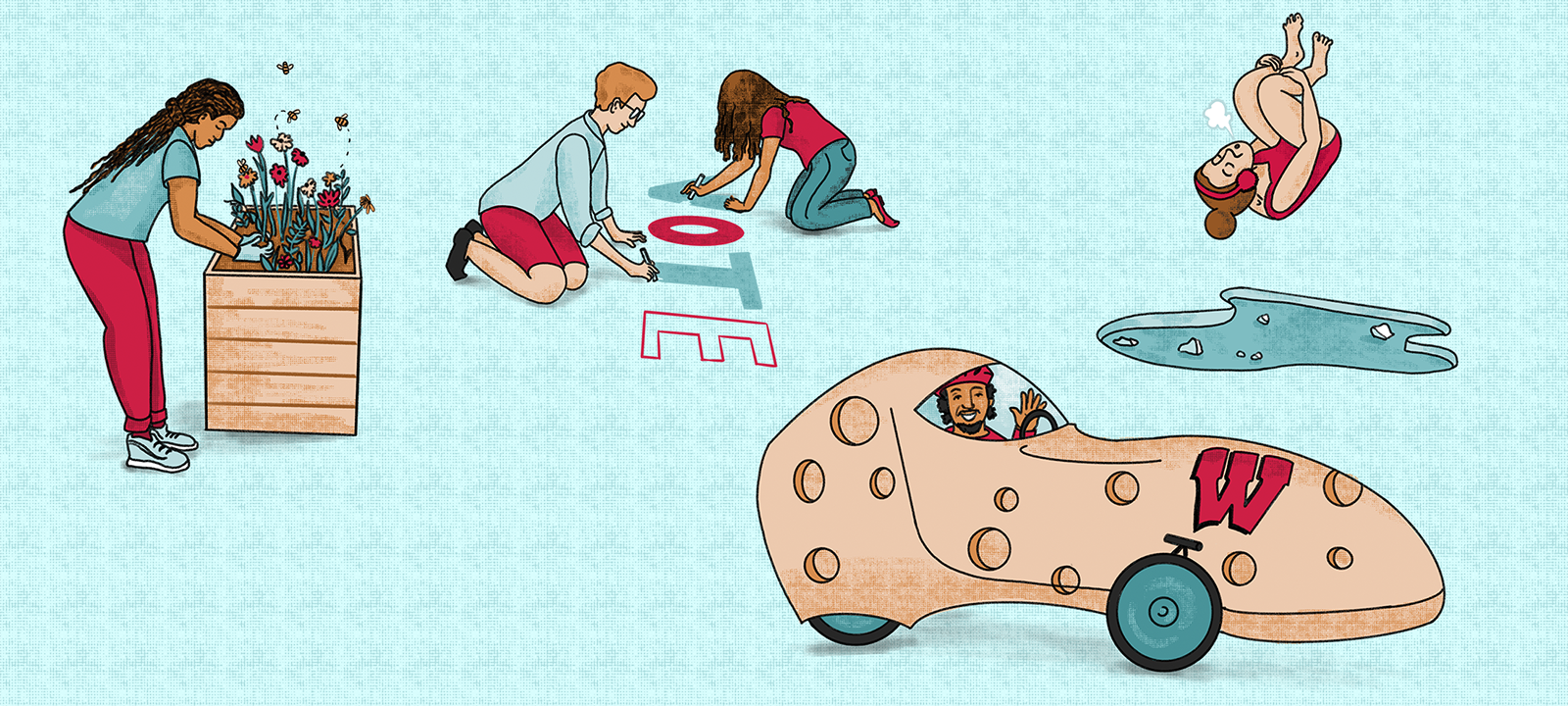
So What Else Did You Learn in College?
Whether earnest or eccentric, UW student organizations prepare Badgers for life outside the classroom.
UW–Madison offers more than 1,000 student organizations. Some, such as the Taylor Swift Society, explore highly specific interests, while others, such as the wall-scaling, rail-hurdling Badger Parkour club, are for only the bravest of Badgers.
The tie that binds all of these groups, even the most unconventional, is the Wisconsin Idea.
“Student organizations are where classroom teachings meet students’ interests and real-life issues,” says Madeleine Carr MS’23, communications coordinator for the Wisconsin Union, a hub for beyond-the-classroom learning and leadership opportunities. “They help students find career paths and places to make change.”
These clubs also dare students to view themselves in a new light: as innovators, risk-takers, or simply adults ready to take on the world. Here are six organizations that allow them to leave their comfort zones and embrace experiential learning, whether by donning a princess dress or hugging a bee.
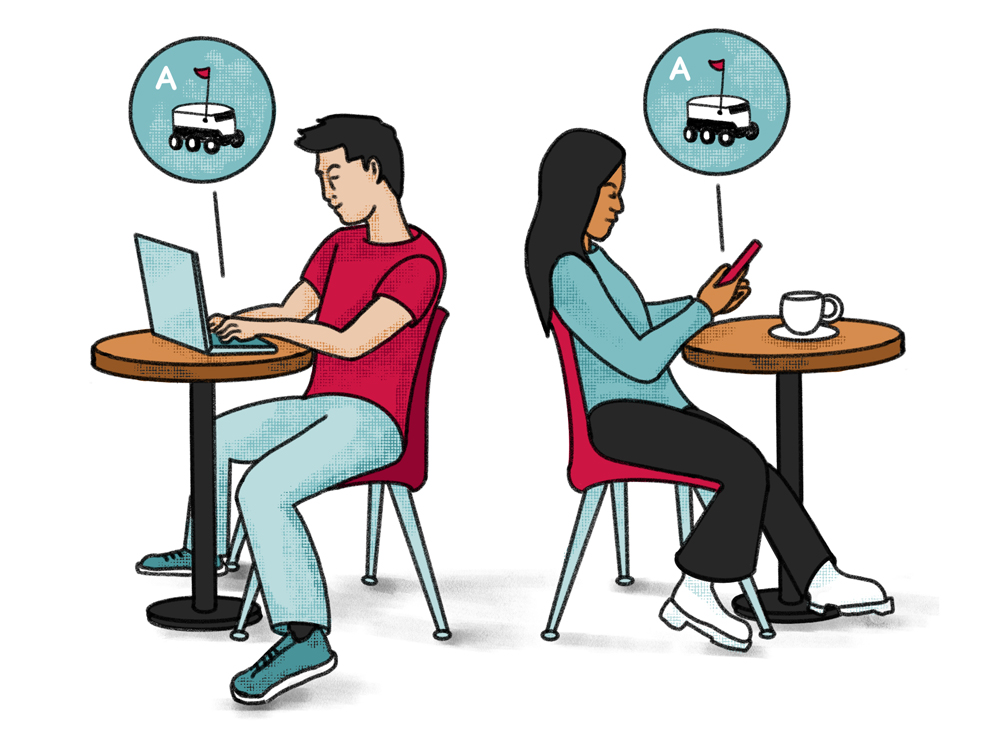 Attempt a Blind Date
Attempt a Blind Date
Sidesplitting stories are common by-products of blind dates, but what if humor drove the matchmaking process? Datamatch aims to answer this question at nearly 50 universities, including UW–Madison. It began at Harvard in 1994, and the local chapter debuted in 2019.
Armed with an algorithm and a silly survey, the organization matches thousands of Badgers each Valentine’s Day. Questions referencing pop culture and campus traditions reveal clues about each respondent’s personality and sense of humor.
In a recent survey, participants were asked who wears the Bucky costume at campus events. The answer they chose — “the soul of Barry Alvarez,” “a really big Starship [food-delivery] robot,” “What do you mean it’s a costume?” or “a clan of smaller Badgers” — helped the algorithm determine their matches.
According to club president Johanna Mejias ’24, respondents receive perks such as restaurant coupons they can use for dates or friend outings. In 2023, Datamatch also organized a game night, a sketch-comedy show, and a prom at Memorial Union.
“Our goal is to enrich the college experience by encouraging students to make new friends, find love, or both,” she says. “Basically, we want students to have fun and enjoy some good deals while they’re at it.”
Mejias, a computer science major interested in game design, joined Datamatch her freshman year, when the COVID-19 pandemic made socializing difficult. The sign-up instructions were vague, so she figured her match would be revealed at one of the club’s meetings. Instead of meeting a potential love interest there, she found a group of future friends.
“I didn’t realize I was joining the committee behind Datamatch,” she says. “I was apprehensive since it was run by these guys who were older than me and had been friends for a while, but they welcomed me with open arms.”
Mejias sharpened her communication skills by applying for grants and building partnerships with local businesses, and running the organization has instilled confidence.
“I used to be afraid to take charge, but I’ve seen a change in myself over the years in the club,” she says. “I believe this will help me in any career I pursue.”
Plunge into an Icy Lake
The Wim Hof Club, whose members are known as Hoffers, gather at the Memorial Union, have a meditation session, and jump into icy Lake Mendota. This combo is thought to promote health and vitality: the colder the water, the bigger the benefits.
“Our meditation involves a lot of breathwork: big inhales, short exhales, and breath holds designed to activate the sympathetic nervous system and promote a sense of calm awareness when you encounter a stressor,” says Prabvir Kukreja ’24, one of the club’s leaders.
The stressor, of course, is the lake. Hoffers say its frigid embrace can help the body’s immune system thrive. This theory springs from Wim Hof, a Dutch athlete who became fascinated with Tibetan breathing techniques. He’s known for his ability to tolerate extreme temperatures and for his method of combining breathwork with cold exposure. Kukreja also points to research by Stanford neuroscientist Andrew Huberman, who has found that cold exposure can reduce inflammation and elevate dopamine levels for prolonged periods.
Kukreja started experimenting with cold exposure as a high school student in New Jersey. The COVID-19 pandemic was ravaging people’s mental health, and he’d heard that cold showers could help quell anxiety. When he discovered the Hoffers at UW–Madison, he knew he had to take the plunge.
“I fell in love with it, and I met other people who are interested in holistic health practices,” he says.
The club has shown him how much discomfort he can handle, too — and how that discomfort can produce resilience. This lesson applies not only to physical challenges but also to academic and social ones.
“When the club meditates, we often include a gratitude component that involves sending out love to others,” Kukreja says. “When you experience a stressor, it’s important to remember that you’re not alone and to take care of yourself afterward.”
Hug a Queen Bee
Bees don’t get many hugs, but they should, says Bees Please president Audrey Braun x’25.
“At least half of the foods we eat rely on pollinators, especially bees,” says the conservation biology and environmental studies major. “But bees are being killed by insecticides, diseases, and climate change, and they’re being overworked in the agricultural sector.”
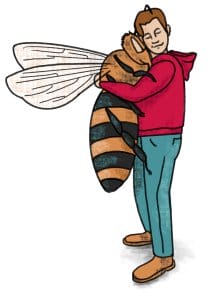 Bee burnout has dire consequences not only for crops, but also for plants that produce shade, shelter, and oxygen. After learning facts like these from a documentary film in high school, Braun knew bee advocacy was in her future. Then, as a college freshman, she made a beeline for pollinator-protection projects.
Bee burnout has dire consequences not only for crops, but also for plants that produce shade, shelter, and oxygen. After learning facts like these from a documentary film in high school, Braun knew bee advocacy was in her future. Then, as a college freshman, she made a beeline for pollinator-protection projects.
“The longer I’ve been in Bees Please, the more I’ve wanted to do,” she says, noting that the organization has helped her develop public speaking and networking skills. “As president, I want to encourage the campus to do more bee-friendly landscaping.”
Braun sees opportunities to add biodiversity to grass-heavy areas of campus and incorporate native pollen sources into rooftop gardens. Discussing these ideas with the Office of Sustainability and other potential partners is the next step.
Bees Please members have visited local elementary schools to share bee facts and tracked pollinators at Allen Centennial Garden. The club also organizes apiary field trips where students can observe hives and meet their inhabitants. Braun even got to cradle a queen bee.
“It was a cold March day, so the beekeeper said we had to keep the queen bee warm,” she recalls. “I held her in my hands, with my mittens on, and he told me to breathe on her. I was terrified I’d inhale her, but that didn’t happen. She and her royal court didn’t sting me, either. They trusted me, and I trusted them.”
Build a Human-Powered Vehicle
The need for vehicles that run on renewable power has never been greater, and UW–Madison’s Human-Powered Vehicle Challenge (HPVC) team builds prototypes that harness the body’s energy.
“The goal is to revolutionize transportation,” says team leader and future engineer Teekay Kowalewski x’25. “There’s an infrastructure problem in cities, especially for parking single-commuter vehicles. Four human-powered vehicles can fit in a car-size parking spot. Plus, they don’t use fossil fuels.”
More sophisticated than the average bicycle and more practical than Fred Flintstone’s foot-powered car, the HPVC team’s vehicles are designed with speed, endurance, and ease of use in mind. They range from recumbent three-wheeled buggies to sleek two-wheelers that look like racing bikes with windshields.
“We have to consider steering geometry and other complicated stuff you’d have to figure out for a larger vehicle, but basically, we’re making a bike you can ride to work without getting wet,” Kowalewski says.
The UW team consists of 10 students who apply classroom knowledge to real-world problems as they cultivate technical skills in product design, manufacturing, and testing. Many are mechanical engineering majors, but students from any academic discipline can participate.
Most years, the team enters a newly designed vehicle in the American Society of Mechanical Engineers’ Human-Powered Vehicle Challenge, where students from across the country flaunt their innovative thinking, design skills, and racing abilities. In 2023, the team created a vehicle suited for wintry conditions and tested it on Lake Mendota. It won an innovation award and the endurance race, whose half-mile course featured a speed bump, a hairpin turn, rumble strips, and other obstacles.
The club gives Kowalewski valuable practice defining problems and devising design solutions. And it’s a chance to create collaboratively, building pride through teamwork.
“I just love making stuff,” he says, “and this is an opportunity to do that with an awesome team.”
Make Change with Art
Amelia Bader x’25 couldn’t find a student organization that married art and activism, so she and a friend founded one in 2022. Art for Change creates “safe spaces for UW students to come together, express themselves as artists, and use those artistic abilities to fuel positive change.”
Service projects take the form of consciousness-raising murals and fundraisers for other change-making organizations.
“Figuring out why an issue matters to you is important, and making art is a good way to do that,” Bader says. “We organize events where students paint their own stories and explore issues that they really care about, whether it’s gender rights, environmentalism, or something else.”
Bader’s ethnic and religious heritage informs her own art making. Participating in Fanana Banana, a Milwaukee-based collective for Muslim women artists, has helped her connect with her peers. It also inspires her to make Art for Change as inviting and interactive as possible.
“Fanana Banana helped me find my voice as an artist and realize that I want to use my art to spread positive, powerful messages,” Bader says.
The club’s public art projects encourage the whole campus to wrestle with social-justice questions. One of them explored the benefits of divesting from fossil fuels, and an interactive piece at the Wisconsin School of Business’s Chalk the Block event encouraged passersby to leave notes for strangers.
“One person writes a nice note, and the next person who comes by takes that note and replaces it with a note they’ve written,” Bader explains. “It’s a way to connect with people you don’t know and promote a sense of belonging, which is something all of us need.”
Become a Princess
Before many Badgers become doctors, lawyers, and teachers, they dream of becoming princesses and superheroes. A Moment of Magic helps UW students live out these fantasies as they delight hospitalized children.
Part of a national volunteer project founded in 2014, the UW–Madison chapter sends Cinderella, Moana, Spider-Man, and other beloved characters to patients at children’s hospitals in Madison and Milwaukee, as well as events hosted by the Leukemia and Lymphoma Society, Gilda’s Club, and the Down syndrome charity GiGi’s Playhouse.
President Gracey Niedzielak x’25 portrays Princess Elizabeth, a character created by a little girl the organization visited in its first year. This princess doesn’t have the star power of Frozen’s Elsa, but she melts hearts just the same.
“Children don’t care if you’re a popular character; they see a princess, and their eyes light up,” explains Niedzielak. “I get to give Princess Elizabeth a story and personality.”
Plus, wearing a poofy purple dress now may help her don a lab coat later.
“I’m premed and interested in becoming a pediatrician,” she says, “so I joined A Moment of Magic to make a difference in kids’ lives while gaining skills I could use for working with kids.”
The club has about 30 active members, many of whom plan to work in schools or pediatric health care settings. Some play characters and others make the rest of the magic happen, striking up conversations with patients’ families and partnerships with hospitals and charities.
Serving the community with others is magical in its own way.
“I’ve found lifelong friends in this group,” Niedzielak says.
Barb Kautz-Wittwer of the UW Center for Leadership and Involvement, which connects students with opportunities to make a difference on campus, says friendships like these are reason enough to join a student organization.
“They help make a big campus feel smaller.” •
Jessica Steinhoff ’01 plunged into the Daily Cardinal and Undergraduate Research Scholars but never frozen Lake Mendota.
Published in the Summer 2024 issue
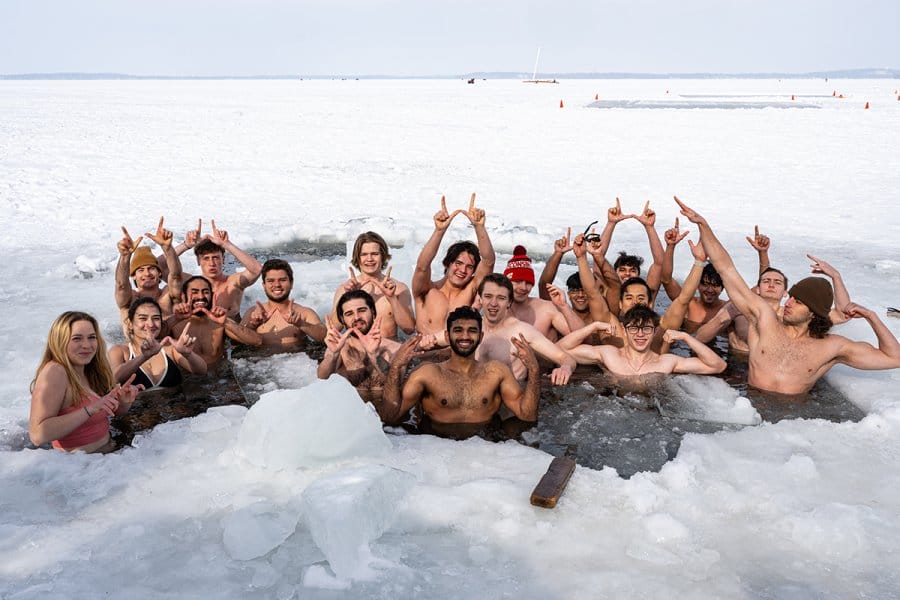
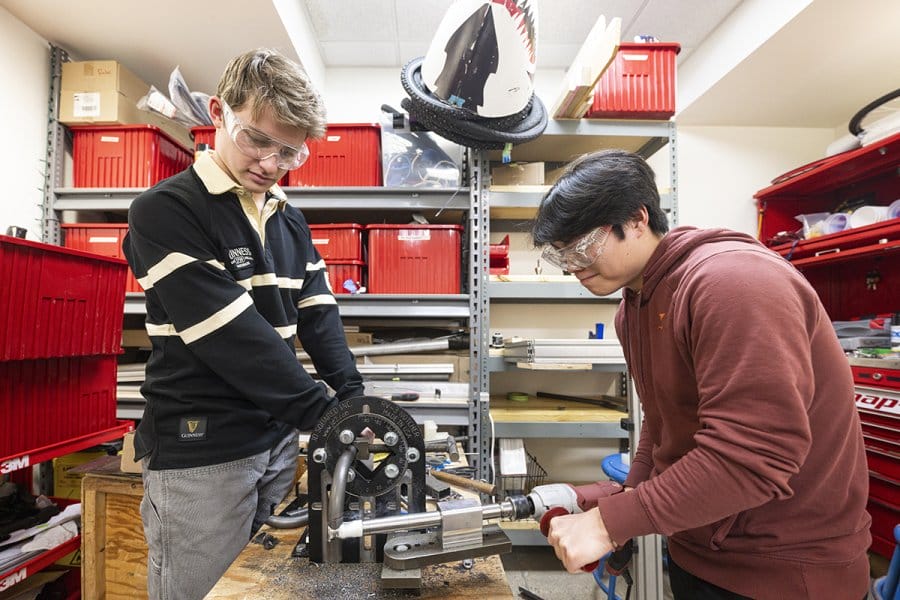
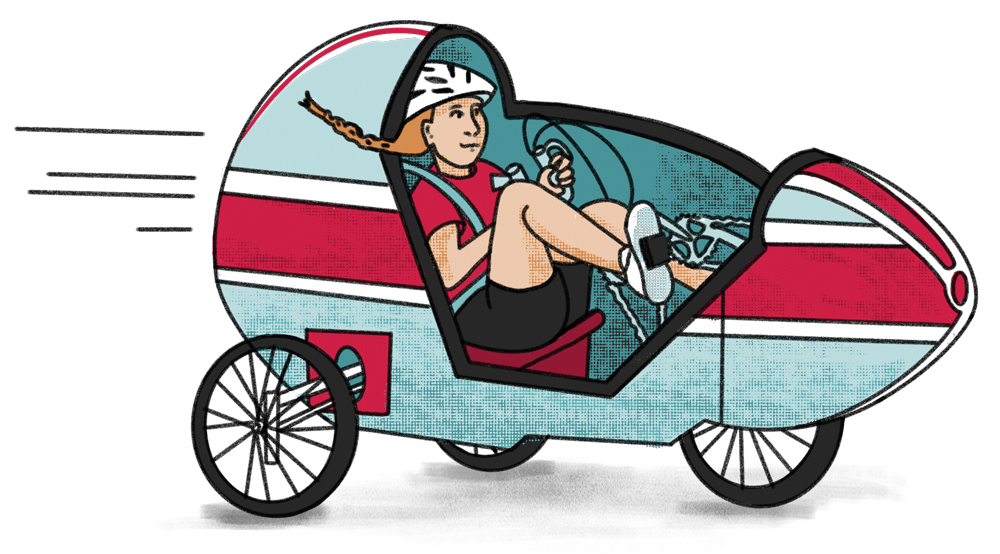
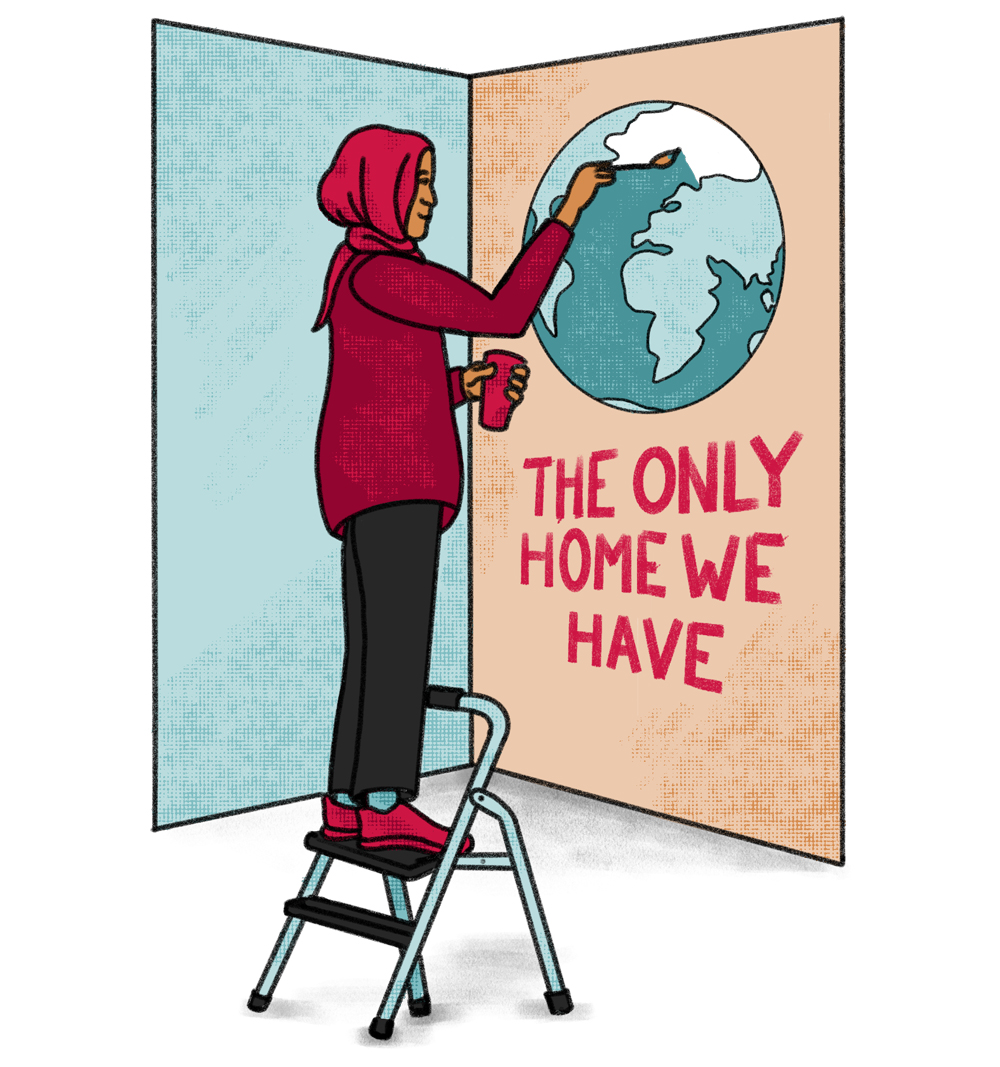
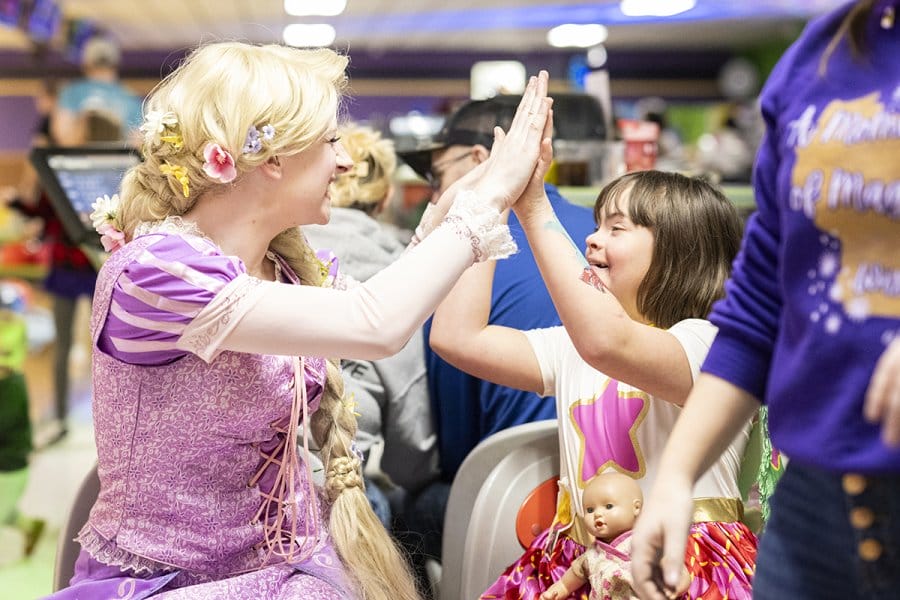
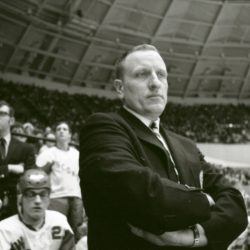
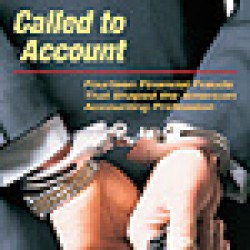

Comments
No comments posted yet.